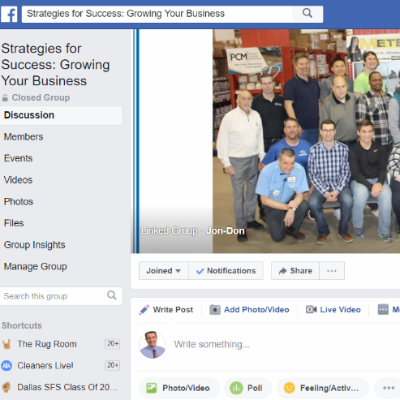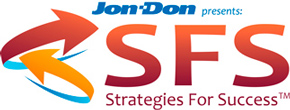You (like me) probably started out doing residential carpet cleaning. See if my story strikes a chord with you…
Waaay back in the mid-70’s I heard about this new thing called “steam cleaning”. Tired of the late hours and low profit margins of my little one-man janitorial service (plus I was a bit bored) I bought a 7 gallon hot water extraction machine. (60 PSI and 110″ water lift- WOO-HOO!)
Of course, I now needed to ‘practice’! So I ‘worked’ (free) for my friends and family and then slowly started cleaning their neighbors and my residential business slowly grew from there.
I personally LOVED cleaning residential carpets. And yes, there is some GOOD in residential!
A) Never boring. Every job was different, usually fun and often challenging.
 B) FUN! I loved ‘putting on a show’ for homeowners.
B) FUN! I loved ‘putting on a show’ for homeowners.
C) Immediate cash flow. 98% of my residential customers paid on (or even before) completion.
D) High visibility. (People often told me, “I see your trucks everywhere.”)
However, I tell every SFS Training group…
Residential carpet cleaning is the toughest money in our industry!
Why? Because of ‘THE BAD’…
1. Enormous price competition. After all, our industry is flooded with new startup cleaners that check out what the (already too low) ‘going rate’ is and then price their services even lower! (Too many cleaners fight over these ‘low-end’ clients like a pack of starving dogs!)
2. Every job is different. This means your techs face a ‘minefield of hidden problems’ at every house. And this unfamiliar worksite at every job inevitably means lower efficiency.
 3. Residential clients are ’emotionally invested’ in their homes. How do homeowners decide on your company’s ‘cleaning quality’? 80% is based on how they feel about the person doing the work! This is great when a personable business owner (like you?) cleans for the client. But a 22 year old tech that ‘doesn’t give a darn’? A disaster in the making!
3. Residential clients are ’emotionally invested’ in their homes. How do homeowners decide on your company’s ‘cleaning quality’? 80% is based on how they feel about the person doing the work! This is great when a personable business owner (like you?) cleans for the client. But a 22 year old tech that ‘doesn’t give a darn’? A disaster in the making!
4. Notoriously fickle and price conscious. Given the relentless price advertising in residential many previous clients will bail on you over a few bucks. How often do you hear, “How come you can’t clean my entire house for $99.00 like _ _ _ _ _ _ _ _ _ _ _ _ _ advertises all the time?”
5. Much greater scrutiny. Given that most residential clients are home during the cleaning they’ll be ‘critically judging’ your tech’s attitude and actions. Even worse, they’ll have their ‘magnifying glass’ out afterwards ready to blame your people for any problem. (Even if it was pre-existing!)
6. Negative online reviews. Homeowners who aren’t delighted with a tech will often ‘bushwhack’ you with a surprise one-star review. (And without even letting you know they were unhappy!)
7. Lower job tickets. Add in your travel and set-up time and many residential jobs lose money right from the git-go! These seven ‘BAD’ points lead to the ‘UGLY’ of residential…
8. Profit margins are low to non-existent! Remember, I really LOVED my residential customers! However, when I added up all the ‘BAD’ points above they all led to dramatically the UGLY- super low profits! (And this was with me being by far the highest priced cleaner in my area!)
Yep, I realized I had to break out of the vicious circle of ‘residential only’. And very likely you do too! Let’s talk about how to do this real soon!
 NOTE: You’ll find great support (or many shoulders to cry on) in our ‘Growing Your Business’ Facebook Group. You don’t have to be a SFS graduate to join so sign up HERE.
NOTE: You’ll find great support (or many shoulders to cry on) in our ‘Growing Your Business’ Facebook Group. You don’t have to be a SFS graduate to join so sign up HERE.
Steve

Thanks Steve. I have done residential primarily because of the hours. Most commercial requires evenings and weekends. But you are right in that IU have to do most of the residential cleaning as the owner because people are fickle and untrusting of techs. Excellent article.
Thanks, Tony! It IS possible to successfully train techs to do commercial instead of the owner being ‘chained to the wand’! For example, we had our techs follow a Residential Check List exactly!
However, working in customer’s home is more challenging than commercial. I suggest a mix of both residential and commercial.
Thank you Steve. Very helpful and so true.